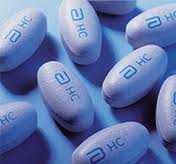While pregnant, women need to be especially careful about what foods and medications that they put into their bodies. Early in the first trimester, while many women are not even aware that they are pregnant, the baby is at a heightened risk for birth defects due to medications being ingested by their mother. Our birth defects attorneys have been writing for months about the drug Topamax and its connection to cleft lip and palate birth defects.
Mothers Taking Active Ingredient in Topamax Three Times More Likely to have Children with Birth Defects
 A recent study called Comparative Safety of Topiramate During Pregnancy, performed by researchers from Harvard University, MassGeneral Hospital for Children, and Loyola University in Chicago, has come to the conclusion that topiramate increases chances of birth defects. According to the study, women who take the active ingredient in the medication Topamax during their first trimester of pregnancy increase the risk of their children being born with major oral birth defects. The study analyzed statistics of 6,456 pregnant women and “compared the frequency of adverse pregnancy outcomes for those who had used topiramate during their first trimester to a control group.” The results were that the children whose mothers took topiramate were almost three times more likely to be born with a birth defect, 3.8 %, than the mothers who did not, 1.3 %.
A recent study called Comparative Safety of Topiramate During Pregnancy, performed by researchers from Harvard University, MassGeneral Hospital for Children, and Loyola University in Chicago, has come to the conclusion that topiramate increases chances of birth defects. According to the study, women who take the active ingredient in the medication Topamax during their first trimester of pregnancy increase the risk of their children being born with major oral birth defects. The study analyzed statistics of 6,456 pregnant women and “compared the frequency of adverse pregnancy outcomes for those who had used topiramate during their first trimester to a control group.” The results were that the children whose mothers took topiramate were almost three times more likely to be born with a birth defect, 3.8 %, than the mothers who did not, 1.3 %.
Birth Defects Lawyers in New Jersey and Philadelphia
If you are a pregnant and currently taking Topamax or any drug containing topiramate, speak with your doctor as soon as possible about other, safer options. If you are a parent who has recently given birth to a child who suffers from a birth defect that you believe can be attributed to a prescription drug, contact the Mininno Law Office to speak with birth defects lawyers and discuss your legal rights. You may also call for a free case evaluation and consultation at (856) 833-0600 in New Jersey, or (215) 567-2380 in Philadelphia.
 Months ago, the Mininno Law Office blog posted about the anti-epileptic drug Topamax, which was shown to cause oral malformations, such as cleft lip or cleft palate, in newborns whose mothers took the drug during pregnancy. The FDA recently changed the drug’s classification from
Months ago, the Mininno Law Office blog posted about the anti-epileptic drug Topamax, which was shown to cause oral malformations, such as cleft lip or cleft palate, in newborns whose mothers took the drug during pregnancy. The FDA recently changed the drug’s classification from  The U.S. Food and Drug Administration (
The U.S. Food and Drug Administration (